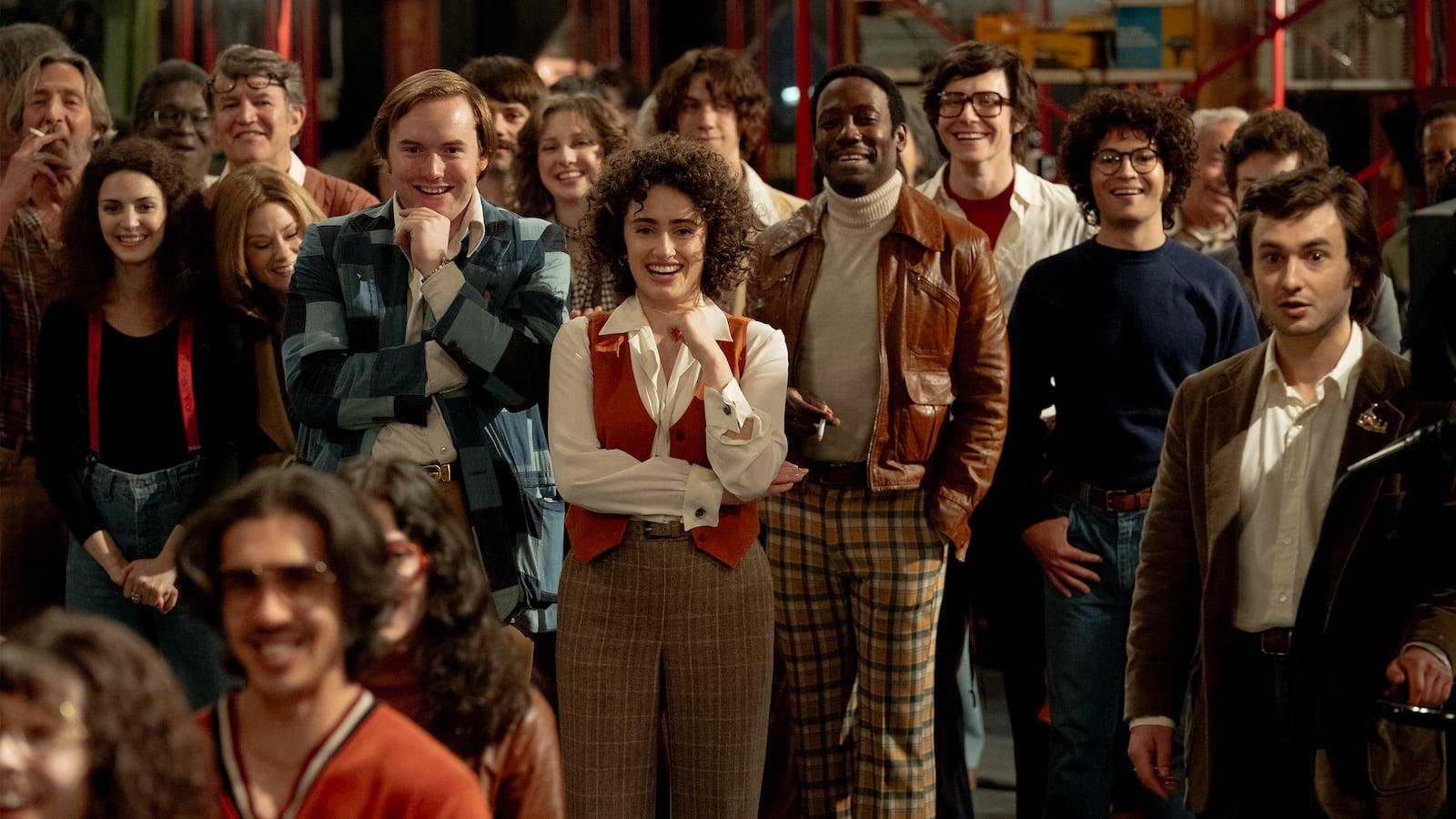Ahead of its 50th anniversary next year, Saturday Night Live’s legacy is primed for its share of revisiting. At the forefront is Jason Reitman’s new film Saturday Night, a comedic return to form for the director of Juno and Up in the Air.
From a script co-written with Gil Kenan, Reitman takes us backstage for the sketch show’s first episode. At its frantic core is The Fablemans’ Gabriel LaBelle as show creator Lorne Michaels, saddled with an unruly cast, a censor with a red marker, and a show so overloaded he can’t figure out what to cut first. The network has set him up for failure, and the clock is ticking for Michaels to pull the production together before either the show airs or someone pulls the plug.
Compared to Reitman’s past work, the film offers less of the heartwarming uplift of his biggest hits and replaces it with amphetaminal anxiety. Like he viewed the world of politics in his quickly forgotten The Front Runner about Gary Hart’s presidential campaign, the director immerses us among all of the people and players within the film’s ecosystem. This time, however, Reitman finds the story’s pulse amidst his sprawling cast of characters.
Saturday Night kicks off at a breakneck pace and seldom lets up over the 90 minutes that follow. Barely gasping for air, the film unfolds in pseudo real time before Live goes live. As LaBelle’s Michaels scoops out bucketfuls from the sinking ship he built, the chaos pulses along with a divine, invigorating Jon Batiste score. The jokes come fast and furious, with the ensemble dancing in the flames that consume the besieged Michaels.

Gabriel LaBelle, Ella Hunt, Matt Wood, and Dylan O'Brien
Hopper StoneThe relentlessness of the film is impressive, maintaining a live wire freneticism that does a lot to mask the thinness of some of its setups and characterizations. Saturday Night is trying to fit a lot into its tight runtime. Without stopping for gas, it spreads itself thin on the details and sells some of its ensemble short. Is Andrew Barth Feldman really only there for a pot joke? Who was Tracy Letts even playing in his one scene? Why are all of the female SNL cast members so far outside the main action of the film?
But in that rush, the film also largely skips over the kind of empty fan service and often rehashed SNL moments that you might expect from it. Nobody wants to watch a version of this story that just feels like dress-up or a costume party. The film can’t and doesn’t avoid that entirely, but it does smartly pick and choose when to dip into recreations in order to serve the story.
Saturday Night is about SNL but it’s also about the amount of agonized collective effort—the negotiation, the conflicting ambitions, the shear dumb luck, and the roadkill left behind along the way—that it takes to successfully make anything at all. Here is how the film also amounts to more than just a wild ride: It convinces the audience (especially one that might take such things for granted) how impossible it is to create something for our mere entertainment.
However, in the film’s final moments, Reitman gives in to the kind of overt worshiping of the SNL legacy that it otherwise mostly dodges. Its flimsiest self-aggrandizement is a finale monologue from LaBelle that feels like an overly rosy keynote, landing like a heaping of raw vegetables after the film has been feeding us caffeine and nicotine for 90 minutes. Though Saturday Night tries to make the case for the sketch show’s innovation, the film is missing some of its own.
Most likely to impress within the film is its massive ensemble, populated by recognizable and new faces alike who bring to life both the marquee SNL names and those behind the camera. Some of the best moments belong to Tommy Dewey’s howlingly cutting head writer Michael O’Donoghue and Lamorne Morris as cast-aside ensemble member Garrett Morris.
Much of the film falls on the shoulders of LaBelle as the at-sea and uncompromising Michaels. While the film avoids lore about the show, it still is fascinated by the enigmatic SNL creator and overlord. With all that’s going on around him, it’s a somewhat thankless task handed to LaBelle, but one he handles with as much charisma as he did in his underrated work in The Fablemans.

Kim Matula, Emily Fairn, Gabriel LaBelle, Rachel Sennott, and Matt Wood
Hopper StoneBut best-in-show in the overstuffed ensemble is Cory Michael Smith as the cocky egomonster Chevy Chase. The film is maybe most interested in Chase’s legacy–or call it infamy–of the entire SNL original cast, save for some moments devoted to Matt Wood’s John Belushi. Facing off with JK Simmons as Milton Berle, Smith exposes the cracks in Chase’s macho self-satisfaction and shows his need for ascendant fame as his kryptonite. His performance is both exactingly funny and an expert dissection of an all-too-recognizable male narcissist. And he does it all with only a few scenes.
Though far from the countercultural experiment it tries to convince us the show initially was, Saturday Night returns Reitman to comedic good graces–even if this broad scale limits him from achieving the precise characterization of his best work. But given the rush of the film, you might not notice it.







